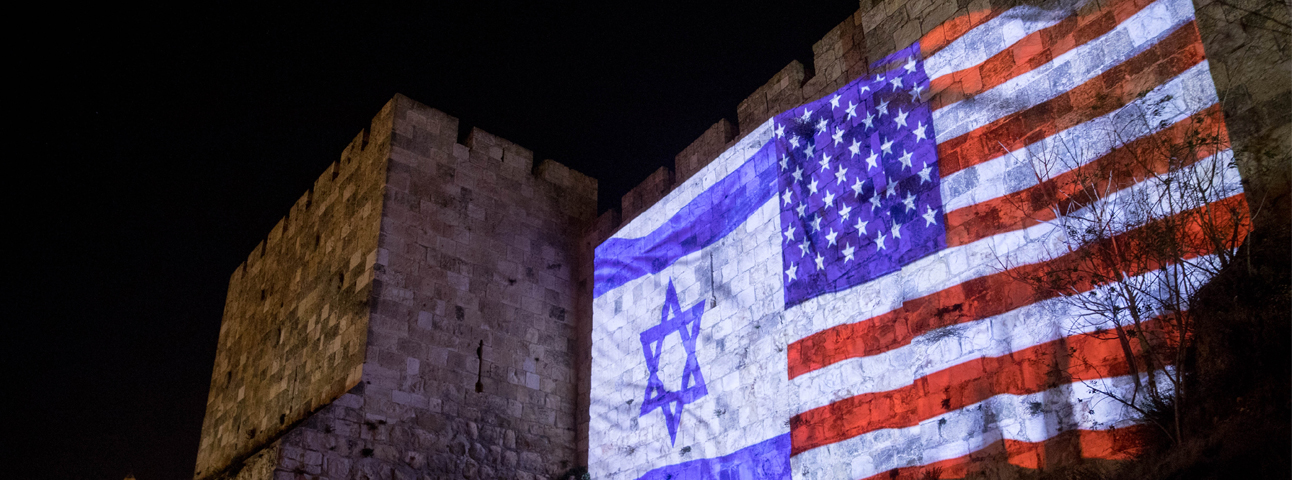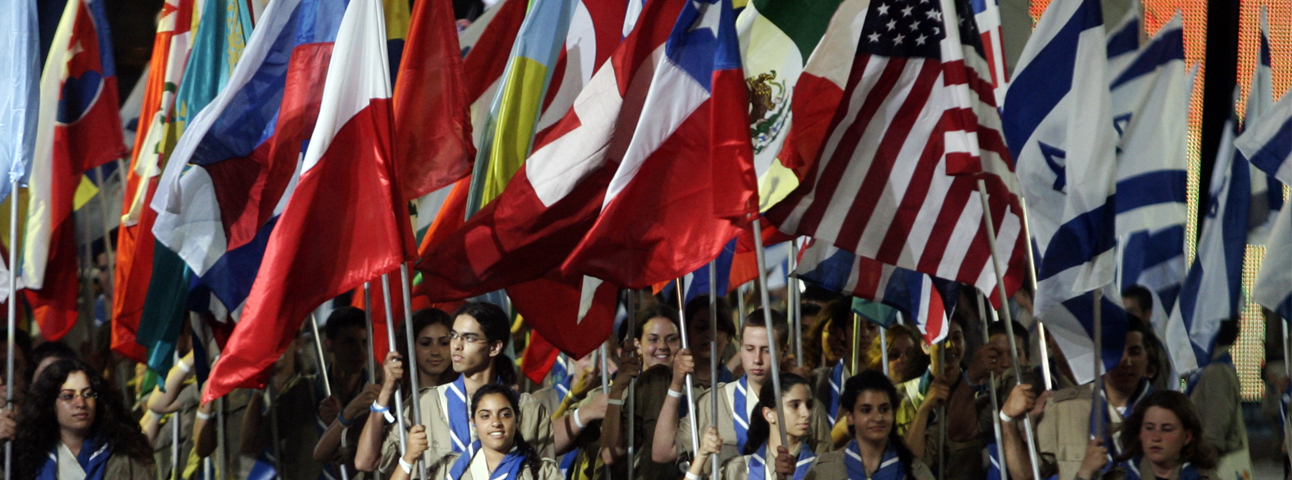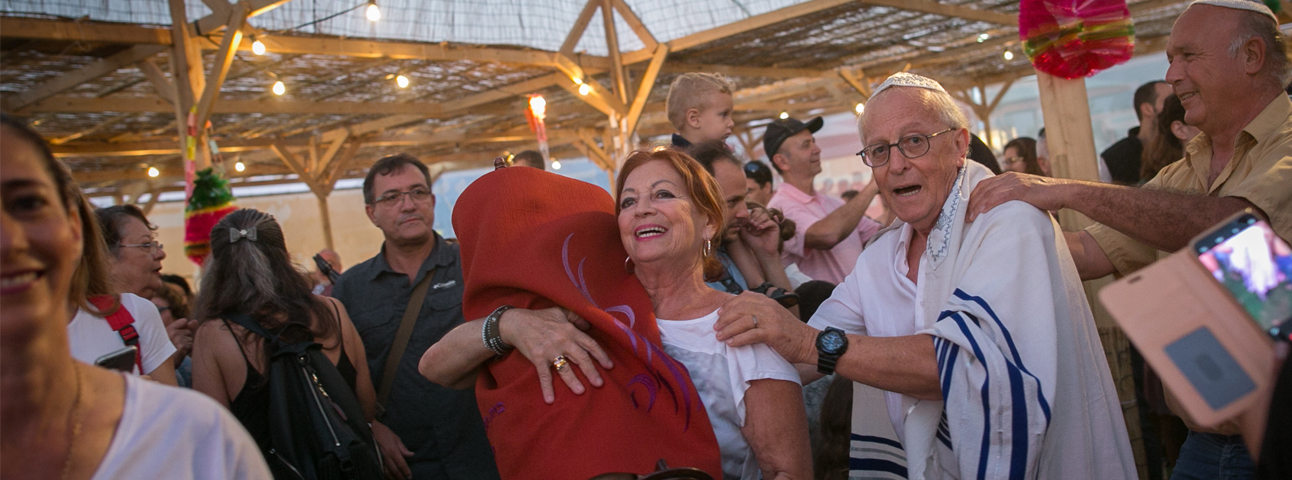From Peoplehood to Brotherhood
“It was the best of times; it was the worst of times.” Dickens’ words seem a highly apt way of describing the current state of the Jewish people, and the relationship between the two largest Jewish communities in the world – those in Israel and the United States.

On the one hand, Jews have never been stronger and more influential, and have never had a state with such power. On the other, in terms of maintaining Jewish identity and of the relations between the Jewish communities (and not in terms of physical threat, of course), it would seem to be the worst of times, at least in comparison to recent centuries.
Since the establishment of the State of Israel, the discourse about the relations between Israel and the Jewish Diaspora, particularly the US Jewish community, has largely revolved around the mutual benefit of good relations for both parties. In light of the ongoing challenge of preserving Jewish identity (which has only increased over the past two decades), and as part of attempts to formulate a broad common denominator, the term “peoplehood” has risen to prominence in recent years. At the beginning of the year marking Israel’s 70th anniversary, it is now clear that the discourse of mutual benefit has become less relevant as a basis and a framework for the relations between Israel and the Jewish Diaspora.
It was the best of time; it was the worst of timesCharles Dickens
While mutual need and mutual benefits still undoubtedly exist, Israel’s growing maturity and strength require that we seek a new set of values that can underpin this relationship in the future. However, it is not clear that the concept of Jewish peoplehood, while it has introduced some new tools into the normative discourse about Judaism, has successfully broken out from the cliques of Jewish professionals and activists to reach the Jew in the street.
It seems that this idea could be given a new slant.

In order to re-frame both the relationship between the two great Jewish communities of our times and the sense of interconnectedness among individual members of the Jewish people, I would like to propose the use of the altneu word “brotherhood.” What is brotherhood? In the book In Search of Solidarity: An Israeli Journey (published by the Israeli Democracy Institute), linguist Ruvik Rosenthal defines brotherhood as the highest level of partnership in every respect, and as a description of the kind of relationship people have with those closest to them.
Before they became a people, the Children of Israel were a family. Even once scripture begins referring to them as a “people,” it continues to describe them also as members of the same family. In the Bible, brotherhood also plays a central role in describing the responsibilities of the individual members of the Jewish people and the relations between them. The term “brother” is used in setting out many of the social and moral obligations Jews have for one another, even if they have no familial connection.
For example: “And your brother shall live with you,” regarding the obligation of charity (tzedakah); or, “You shall not hate your brother in your heart,” in the context of the emotional attitude ethically required of a Jew toward other Jews. These are just two instances of many biblical sources that use brotherhood as a framework to describe the proper relations between Jews, and the way in which Jews ought to conceive their attitudes and responsibilities toward one another.
The most salient characteristic of brotherly relations, unlike other forms of relationship, is the foundational commitment to one another, regardless of one’s own interests. Unlike a partner, or even a friend, in which cases the relationship has an element of utilitarianism, and can even be driven by such individual interests, brotherhood is a relationship that is based on a common fate.
Brotherhood is a situation into which one is born, and which forms an essential part of one’s identity; it has its benefits, but also its costs and its obligations, for all brothers and sisters. Siblings may have very different world views, value systems, or chosen lifestyles, but they will always remain family. The differences and the disagreements between them may make their brotherhood a difficult experience, but they will never dismember it. Alongside any anger or criticism, there will always remain also a kernel of closeness and love.

How can brotherhood help re-frame the relations between the largest community of Jews in the world – Israel – and the Jewish communities of the United States and of other countries? As a shared fate that we choose to bear, even if it serves no concrete mutual or unilateral interest, brotherhood is a framework that is accepting of difference, of anger and criticism. Among siblings, arguments are not swept under the rug. They must be aired and spoken about, even if talking about them is painful for both sides. However, these arguments must be conducted on the basis of shared brotherhood between the communities, founded on the understanding that brotherhood comes above and before everything, and also sometimes includes painful disagreements.
Brotherhood can also be a helpful way of considering the subjective feelings involved in the relations between Jewish individuals. Alongside the sense of shared identity that “peoplehood” seeks to foster, brotherhood offers a possible definition for the emotional attitude of Jews toward their fellow Jews, and is a basis for intimate belonging to a collective that is also a family. I am well aware of the disadvantages of the use of “brotherhood” as a new theoretical framework for the relations between Jewish communities and individuals. Beyond the potential for it to sound sentimental and schmaltzy, the demands made of us by brotherhood are even greater than those of peoplehood. Thus, people might argue, this concept may be nothing more than an empty slogan, with no realistic use.
Certainly, it is no minor undertaking to welcome several million brothers and sisters into our family, all of them different from us and disagreeing with us on so many issues. And yet, with all the difficulties and the cynicism that characterize us as Jews, framing our relationship as a brotherhood can offer a new horizon for thinking about the Jewish people, its communities, and its individual members.
First published in the Jerusalem Post
